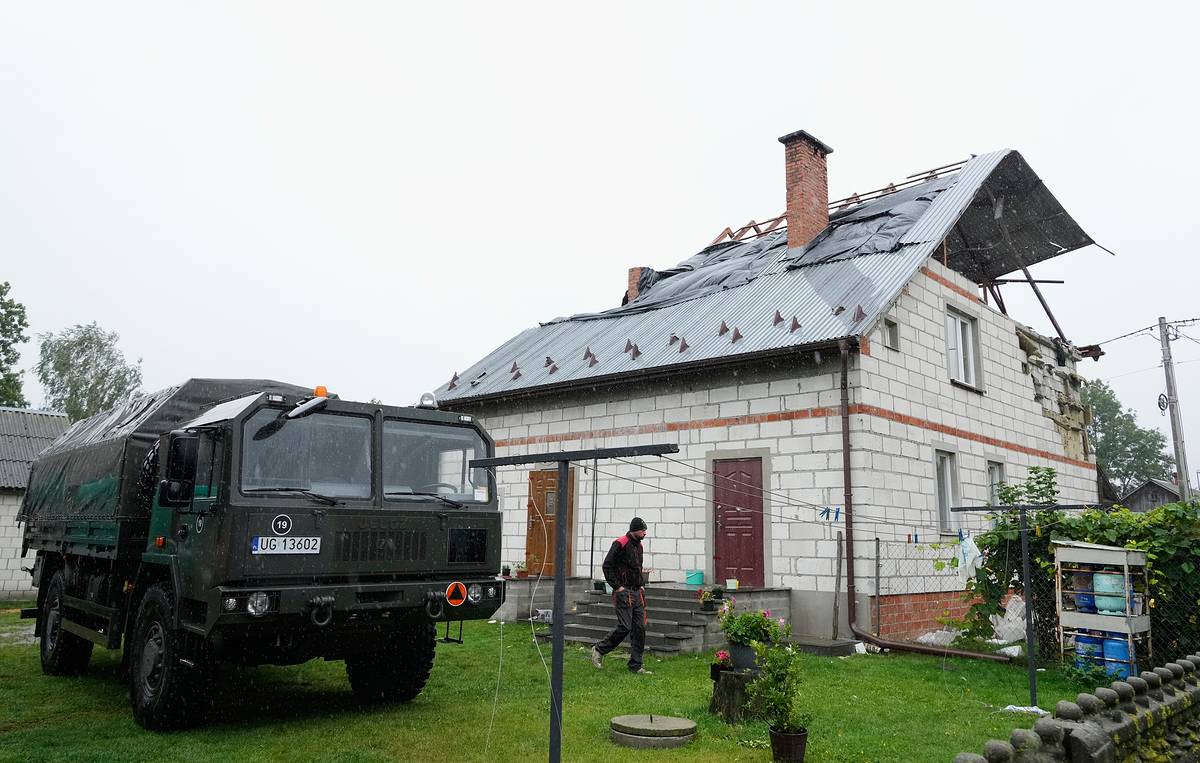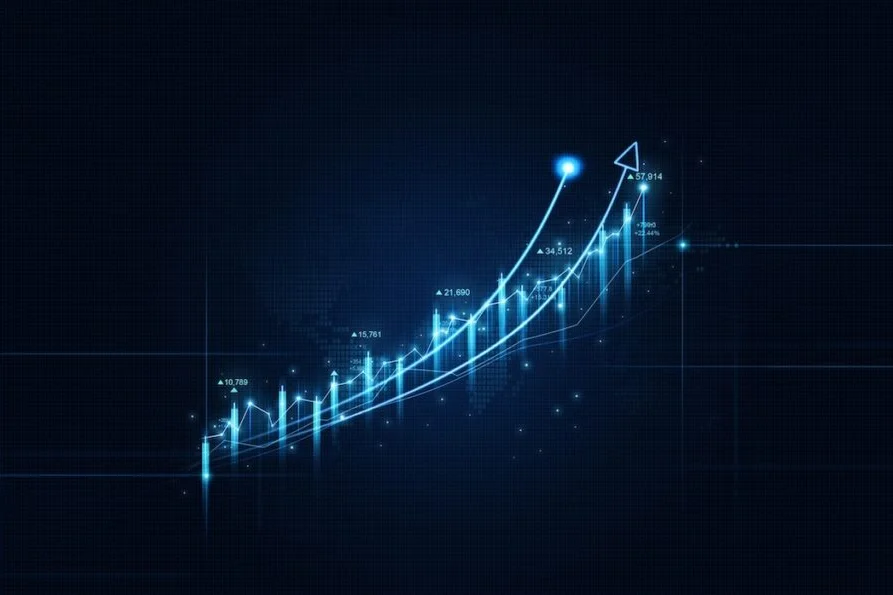Press review: NATO launches operation Eastern Sentry while US deploys missiles in Germany
By Tass
Copyright tass

MOSCOW, September 15. /TASS/. NATO launches Eastern Sentry operation after Polish drone incident, escalating tensions with Russia; US Secretary of State Rubio visits Israel amid Qatar strike fallout and annexation talks; and Nepal’s interim government under Sushila Karki seeks stability after Gen Z-led uprising. These stories topped Monday’s newspaper headlines across Russia.
Izvestia: NATO launches operation Eastern Sentry after drone incident in Poland
Western countries have taken a path of escalating tensions with Russia. The orchestrated provocation involving allegedly Russian drones and Poland’s refusal to engage with Moscow on this issue reflects the determination of Kiev and its European allies to intensify the confrontation, Federation Council Deputy Chairman Konstantin Kosachev told Izvestia. On September 13, Poland and Romania reported threats of drone incursions into their airspace from Ukraine, and that same day NATO launched Operation Eastern Sentry. At the same time, the European Union is seeking to push the United States toward tougher measures against Russia by expanding sanctions, according to experts.
EU member states plan to discuss a response to the drone incident in Polish airspace at a meeting of ministers responsible for European affairs, scheduled for September 16, Polish radio station RMF FM reported. Against this backdrop, NATO announced the start of operation Eastern Sentry on September 13 “to strengthen the Alliance’s presence on the eastern flank.”
Meanwhile, the EU is stepping up pressure on Russia in other areas as well. This week, the European Commission is expected to present the 19th package of anti-Russian sanctions. Earlier, Brussels agreed to extend for six months the individual restrictions imposed after the start of the special military operation.
Poland’s unwillingness to engage with Moscow shows that Kiev and its European partners intend to continue escalating the conflict with Russia, Federation Council Deputy Chairman Konstantin Kosachev told Izvestia. “Of course, the provocation is man-made. I am certain that Ukrainians are behind it, as well as those who support and encourage them in their determination to prolong the armed conflict with Russia. The escalation is plainly visible,” he told Izvestia. “The situation could be comprehensively resolved through direct consultations between the relevant Polish and Russian agencies, without intermediaries. Since everything is being done except this, it is clear that the issue is not concern for security, but rather a desire to continue pressing the escalation pedal in the conflict in Ukraine,” he added.
Kosachev added that Russian-Ukrainian negotiations are currently on hold. “Kiev is not currently engaged in any negotiating process with Russia. As far as I understand, even working-level consultations have now been put on pause, and not at our initiative. This occurred before the current provocation with drones in Poland,” the senator clarified.
Political analyst Denis Denisov told Izvestia that Kiev’s strategy is based on the expectation of unlimited support from the collective West. “That is why Kiev does not consider it possible to make compromises concerning its officially declared positions. If the situation on the battlefield changes significantly, then we will see shifts in the negotiation process. In this context, Kiev’s proposals to hold a leaders’ summit look questionable. Such events could be held, but only with a series of carefully worked-out details and provisions, and their results must yield some form of concrete decisions,” he added.
Vedomosti: US Secretary of State visits Israel amid Qatar strike fallout, potential West Bank annexation talks
US Secretary of State Marco Rubio arrived in Israel on September 14 for an official visit, five days after its air force carried out a strike against the territory of Qatar – another Washington ally in the Middle East. Rubio was received by Israeli Prime Minister Benjamin Netanyahu and other members of the government. Over the course of two days, the Secretary of State plans to discuss the regional situation and the course of hostilities in the Gaza Strip, Vedomosti reported. In addition, the parties may address the potential annexation by Israel of the occupied West Bank in response to the announced recognition of the State of Palestine by several Western countries at the UN General Assembly session at the end of September 2025, Axios noted, citing sources.
Before departing for Israel, Rubio told journalists that President Donald Trump remained dissatisfied with Israel’s military operation in Doha, which was carried out with the aim of eliminating key leaders of the Palestinian movement Hamas. However, according to Rubio, this would not undermine Washington’s determination to continue supporting Israel. He added that at the talks in Jerusalem, the parties would discuss how the events in Qatar could affect prospects for the release of 48 Israeli hostages held by Palestinian militants.
At the negotiations in Jerusalem, the sides are expected to focus primarily on ways to ease pressure from Arab states on Israel following its airstrike on Qatar, Kirill Semenov, expert with the Russian International Affairs Council, told Vedomosti. In his view, the Israeli Air Force attack came as a complete surprise to Washington, which is now compelled to act jointly with Israel to mitigate its consequences. “Rubio is known for his sympathies toward Israel. It is almost certain that in the course of the dialogue he will place full responsibility for the recent incident on Hamas,” he added.
The expert argued that annexation of the West Bank by Israel, coupled with its recognition by the United States, would spell the end of the Abraham Accords. This would mean that Washington is unequivocally placing its bet in the region on the Jewish state and effectively rupturing its arrangements with Arab nations. At the same time, there is strong opposition within Israeli society to the government’s annexation plans, and the final decision will depend primarily on Netanyahu’s ability to withstand pressure from hardline members of his government, Semenov noted.
The visit of the US Secretary of State also carries symbolic significance for Israel in the context of the September 12 UN General Assembly resolution in support of establishing a Palestinian state, according to Murad Sadygzade, president of the Center for Middle Eastern Studies. The resolution was backed by 142 of 193 member states, including Russia, China, and most European countries. Israel, the United States, and eight other states voted against it.
Izvestia: US to temporarily deploy missiles in Germany, raising new tensions with Russia
The deployment of American strike systems in Germany has become a new flashpoint in Russia-NATO relations. The planned stationing of intermediate-and shorter-range missiles on German territory, scheduled to begin in 2026, will be temporary, although earlier the parties had discussed long-term basing, Izvestia writes. This may represent a US attempt to preserve room for maneuver in future negotiations with Russia. However, experts do not rule out that the temporary deployment could become lasting, as previously happened with Typhon systems in the Philippines.
The deployment of long-range US missiles in Germany will be temporary, the German Ministry of Defense told Izvestia. “The US administration has not reported any changes in plans concerning the temporary deployment of long-range weapons systems in Germany,” an official representative of the defense ministry said.
The weapons in question are Tomahawk cruise missiles with a range of up to 2,500 km, multi-purpose SM-6 missiles (370-480 km), and next-generation hypersonic strike systems in a non-nuclear configuration.
The United States may be leaving itself a loophole to revise this decision later, German political scientist Alexander Rahr told Izvestia. “Washington will immediately abandon this idea if a peace process develops in Ukraine. The US is deploying missiles only at the request of the Germans, who want to secure an ongoing American presence in Europe and strengthen the US nuclear shield over their territory,” the expert emphasized.
Notably, in August, Donald Trump did not rule out the possibility of reducing the American military presence in Europe as part of arrangements related to Ukraine.
The deployment of American missiles “constitutes an obvious and direct threat to Russia’s security,” Russian Ambassador to Germany Sergey Nechayev noted earlier. Nonetheless, this unfriendly US step cannot be regarded as an insurmountable problem, research fellow at the Center for International Security at the Institute of World Economy and International Relations Dmitry Stefanovich told Izvestia. “A much greater long-term problem is the buildup of European arsenals of missiles in these categories,” the expert told Izvestia.
Russia is already responding to Western actions. On August 4, the Ministry of Foreign Affairs announced the lifting of the moratorium on the deployment of intermediate-and shorter-range missiles, declaring that the conditions for maintaining it no longer exist.
Kommersant: Nepal seeks path out of crisis as former chief justice leads interim government
The crisis in Nepal, triggered by the so-called “Gen Z revolution,” is beginning to subside from its acute phase. Former Chief Justice Sushila Karki, who has assumed the post of head of the interim government, is forming a new cabinet of ministers, whose lineup will be announced in the coming days. The next step toward normalization is expected to be early parliamentary elections, scheduled for March. The authorities face the urgent task of developing a new political course to prevent a resurgence of protests and their escalation into civil war, Kommersant reported.
The first signs of stabilization appeared after Sushila Karki was sworn in as interim prime minister on September 12. Despite last week’s clashes, which resulted in fatalities and caused significant material damage by Nepalese standards, there is no talk of prosecuting activists involved in the youth protests.
The country’s future will hinge on whether genuine change follows the new government and snap elections, or whether the “deep state” of the former Himalayan kingdom regains control, weakens the youth movement, and preserves the old system with minimal concessions.
“After Sri Lanka and Bangladesh, yet another government in South Asia has swiftly collapsed under the pressure of mass street protests. A common trend among these countries, which have caught the attention of global media, has been the ousting of top leadership and the forced initiation of reforms under pressure from a radicalized segment of society unwilling to continue living by the old rules. Nepal has now become the latest focal point in this regional ‘bottom-up revolution,’ where people are speaking of Generation Z, unknown just a week ago,” independent Indian expert Shastri Ramachandaran explained to Kommersant.
“The fact that the immediate trigger for the protests was the authorities’ failed attempt to block social media is understandable. In today’s Nepal, social networks are not merely a form of entertainment. For most of the population, the internet remains a vital source of news, livelihoods, and remittances, making it an essential survival tool in daily life. Now, among the ruins of parliament and government buildings, Nepalis face a far more difficult challenge: to begin building new politics and a new country while confronting the multitude of problems ahead,” the expert added.
Vedomosti: China triples imports of Russian nickel amid rising stainless steel output, lower global prices
China’s imports of unprocessed nickel from Russia in January-July 2025 soared compared with the same period last year, reaching 49,130 tons, according to data from China’s General Administration of Customs reviewed by Vedomosti. Experts attribute the surge in Russian nickel exports to China to rising stainless steel and battery demand, greater reliance on premium suppliers, new trade and payment mechanisms, and lower prices that allow Beijing to expand strategic reserves.
In July alone, exports surged 19-fold year-on-year to a record 17,740 tons, exceeding the total volume of shipments for all seven months of 2024 (16,230 tons). In monetary terms, deliveries in January-July rose 2.7 times to $772.6 mln. July exports alone were valued at $277.1 mln, a 16-fold increase compared with July 2024, the customs’ data showed.
The growth in Russian nickel imports coincides with an overall rise in China’s purchases of the metal, the Customs Service said. In January-July, China acquired 132,830 tons of nickel from foreign markets, which is 2.9 times more than in the same period a year earlier.
The surge in demand for nickel this year is driven by China’s steel industry, independent industrial expert Leonid Khazanov told Vedomosti. Boris Krasnozhenov, head of securities market analytics at Alfa-Bank, agreed and recalled that China accounted for 63% of global stainless steel output in 2024. According to the China Iron and Steel Association, the country’s stainless steel production in January-June 2025 climbed by 5% to 20.2 mln tons.
Nickel consumption in China is also expanding in the battery manufacturing sector, Krasnozhenov noted. He added that China is increasingly relying on premium nickel suppliers, including Russia’s Nornickel.
Khazanov stressed that Russian imports are bolstered by expanding existing supply routes, building new ones, and establishing cross-border payment systems.
Another factor contributing to the increase is the decline in nickel prices, Dmitry Baranov, a leading expert at Finam Management, told Vedomosti. Lower prices enable China to build up nickel reserves, which is especially important amid “trade wars” and the risks of supply disruptions, he added. The future trajectory of Russian nickel exports to China will depend on global price trends for the metal, as well as the dynamics of production in China’s steel and engineering industries, Baranov concluded.
TASS is not responsible for the material quoted in these press reviews



